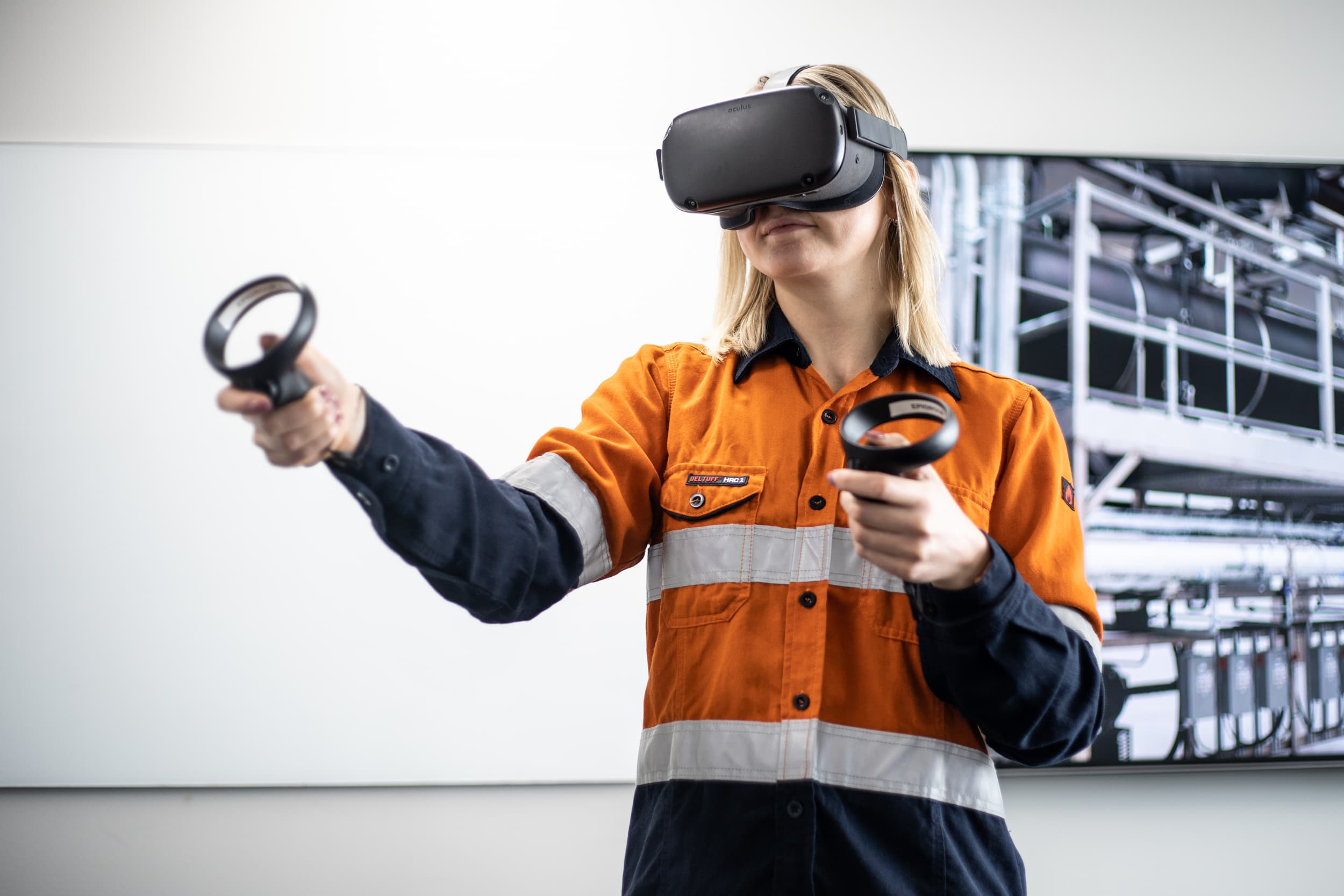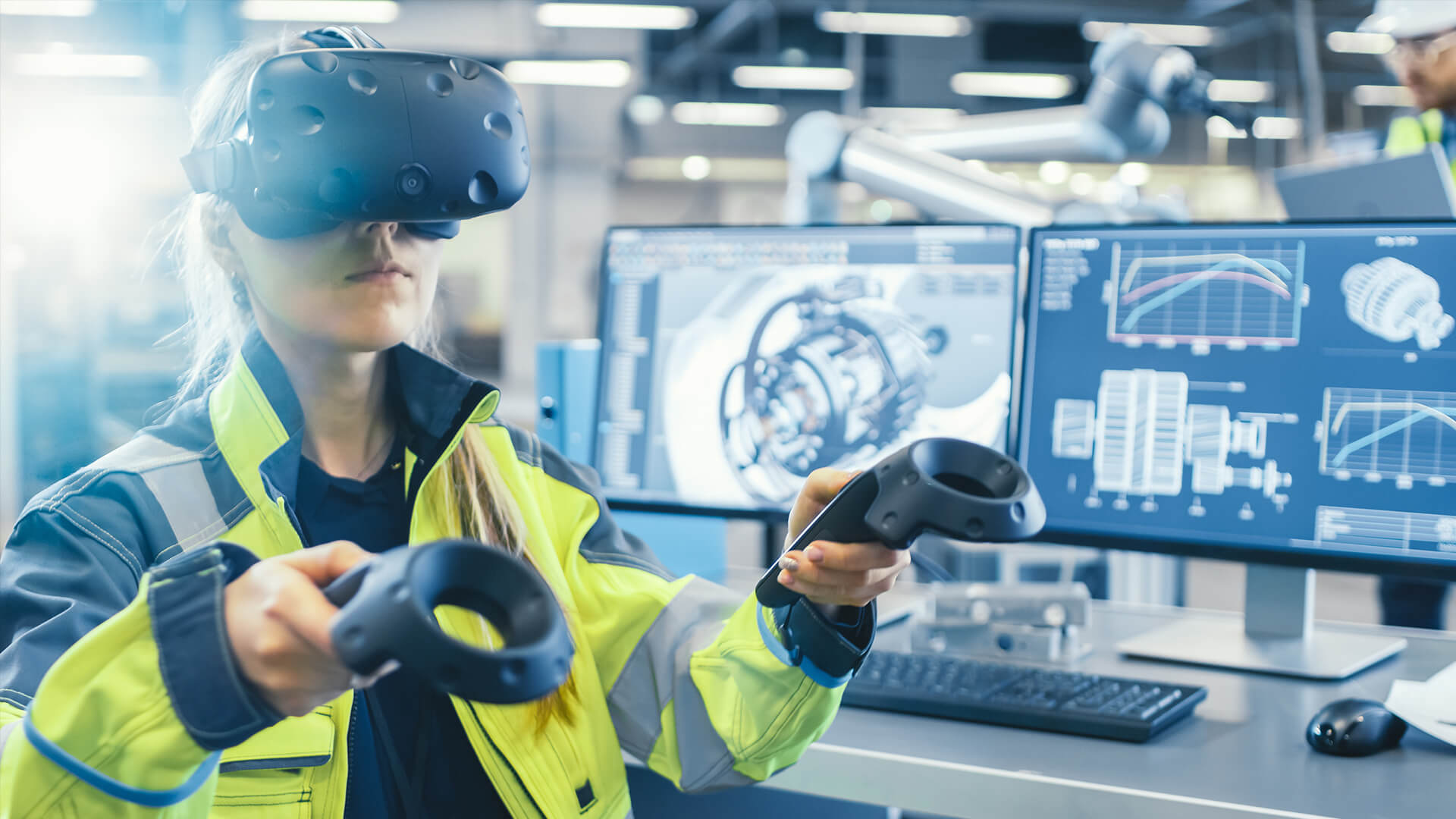Nov 23, 2023
Introduction
Dubai, a city known for its forward-thinking approach and commitment to innovation, is at the forefront of leveraging immersive technologies to revolutionize training and education. One such technology gaining traction is 360-degree virtual reality (VR) with 3D environments, offering a transformative approach to immersive learning experiences. In this article, we'll explore how this cutting-edge training method is shaping the future of education and professional development in Dubai.
The Evolution of Training Methodologies:
Traditional training methods often lack engagement and fail to provide hands-on experiences. However, with the advent of 360-degree VR technology, training has evolved into immersive experiences that transport learners into realistic 3D environments. In Dubai, forward-thinking organizations are embracing this shift, recognizing the potential of VR to enhance learning outcomes and drive performance improvement.
Immersive Learning Experiences:
360 VR with 3D environments training in Dubai offers learners unparalleled immersion and interactivity. Participants can explore virtual environments from all angles, interact with objects, and engage in realistic scenarios, creating a dynamic learning experience that stimulates critical thinking and problem-solving skills. Whether it's training for emergency response procedures, customer service interactions, or complex technical tasks, VR brings learning to life in ways never before possible.
Realistic Simulations for High-Risk Scenarios:
Dubai's diverse industries, including aviation, healthcare, and construction, require training for high-risk scenarios where real-world practice may be challenging or dangerous. VR technology enables organizations to create realistic simulations of these scenarios in virtual environments, allowing learners to practice skills and decision-making under pressure without putting themselves or others at risk. From simulating aircraft emergencies to surgical procedures, VR-based training prepares professionals for real-world challenges with unprecedented realism and effectiveness.
Enhanced Retention and Engagement:
Studies have shown that immersive learning experiences significantly improve knowledge retention and engagement compared to traditional training methods. In Dubai, organizations are leveraging 360 VR with 3D environments to create memorable training programs that captivate learners' attention and encourage active participation. By integrating gamification elements, interactive simulations, and personalized feedback, VR training keeps learners motivated and invested in their learning journey.
Cost-Effective and Scalable Solutions:
While traditional training methods often incur high costs associated with venue rentals, equipment, and instructor fees, VR training offers a cost-effective and scalable alternative. In Dubai, organizations can deploy VR training programs across multiple locations, reaching a wider audience of learners without the need for physical resources. Additionally, VR technology enables organizations to update and customize training content quickly and easily, ensuring that learners receive the most relevant and up-to-date information.
Driving Innovation and Competitiveness:
Dubai's commitment to innovation and excellence positions the city as a hub for VR technology adoption in training and education. By embracing 360 VR with 3D environments training, organizations in Dubai gain a competitive edge by offering cutting-edge learning experiences that attract top talent, enhance employee performance, and drive organizational success. Moreover, by investing in the development of VR training programs, Dubai solidifies its reputation as a global leader in leveraging technology for human capital development.
Collaborative Partnerships and Future Opportunities:
As VR technology continues to evolve, opportunities for collaborative partnerships and innovation in Dubai's training landscape abound. By partnering with VR development studios, educational institutions, and industry experts, organizations can co-create immersive training solutions tailored to their specific needs and objectives. Additionally, as VR hardware becomes more accessible and affordable, the potential for widespread adoption of VR training across industries in Dubai is poised for exponential growth.

Conclusion
360 VR with 3D environments training is paving the way for a future where immersive learning experiences drive performance improvement and innovation in Dubai's education and training landscape. By embracing this transformative technology, organizations in Dubai can navigate the future with confidence, equipping learners with the skills and knowledge they need to succeed in an increasingly complex and dynamic world. As Dubai continues to lead the way in leveraging technology for human capital development, the possibilities for immersive training solutions are limitless, shaping the future of learning for generations to come.





